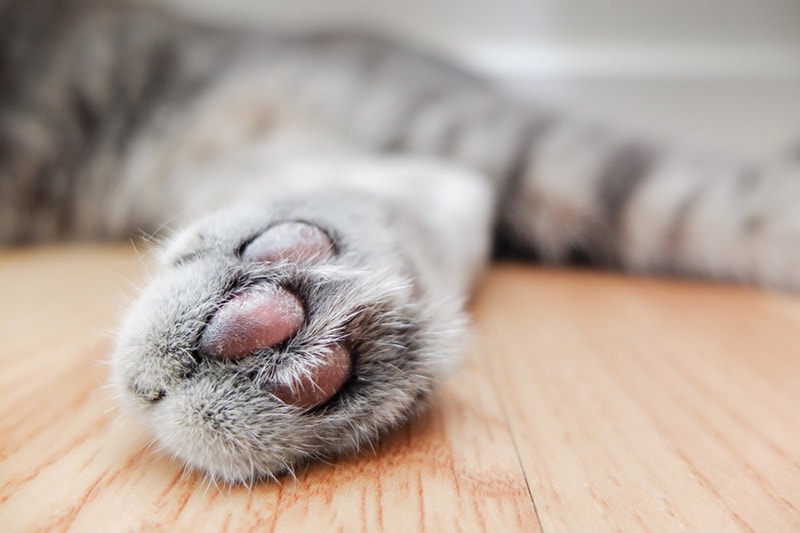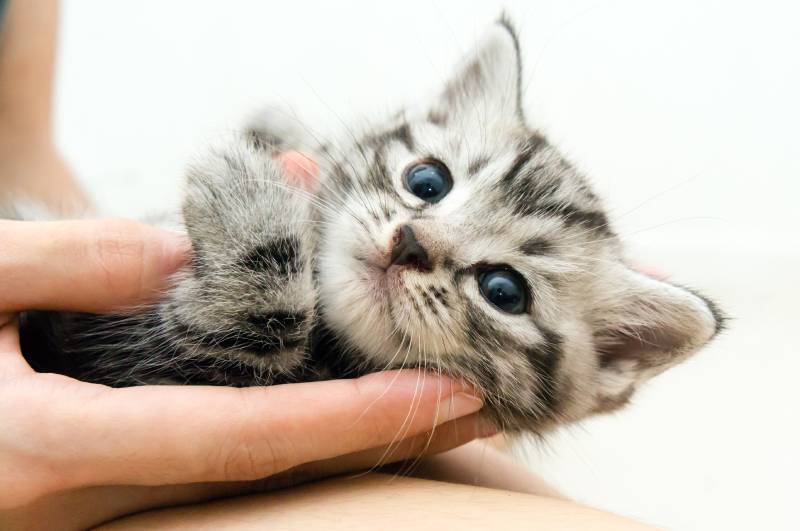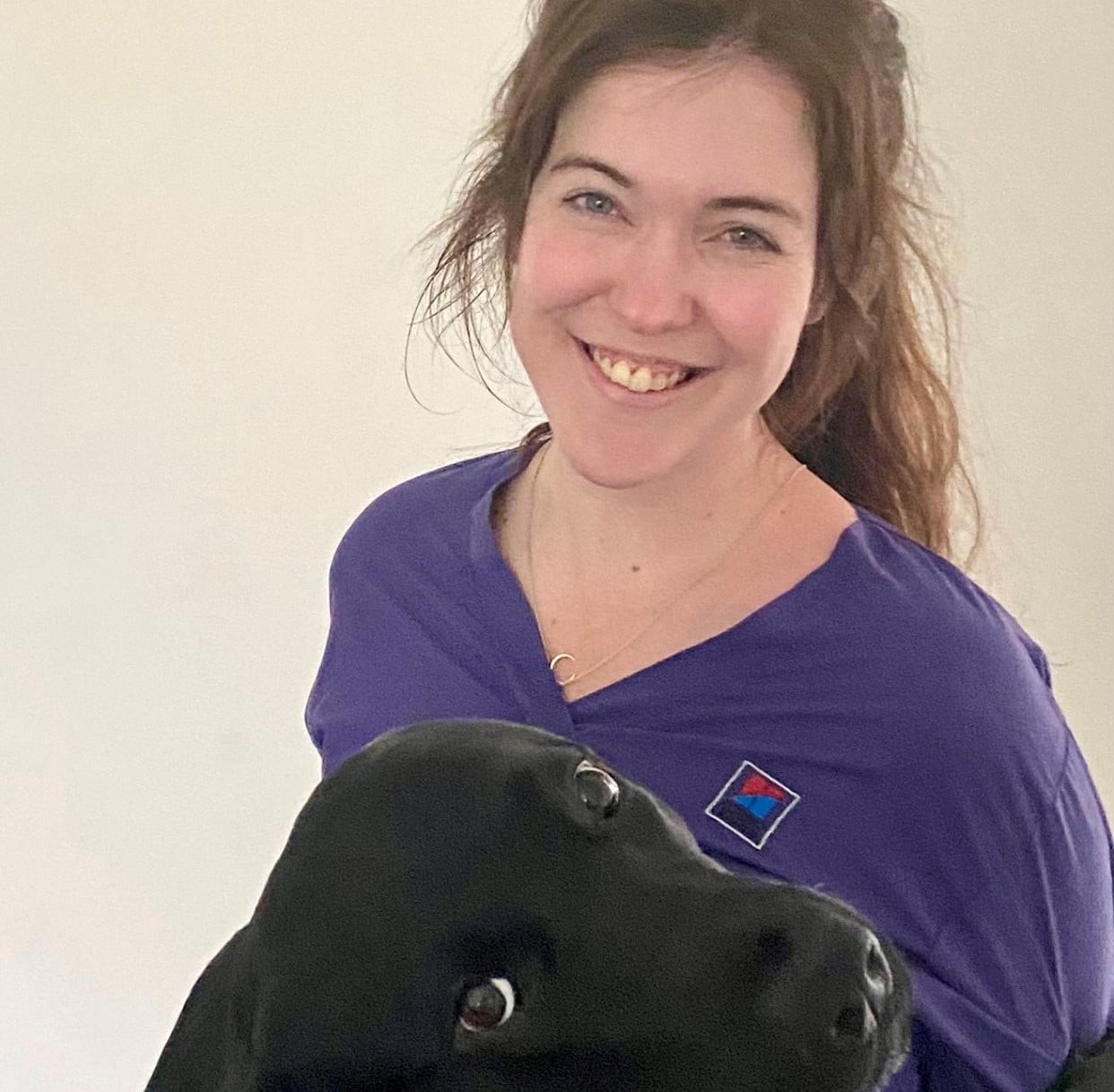Why Do Cats Lick When You Scratch Their Back? 4 Reasons & FAQ

Updated on
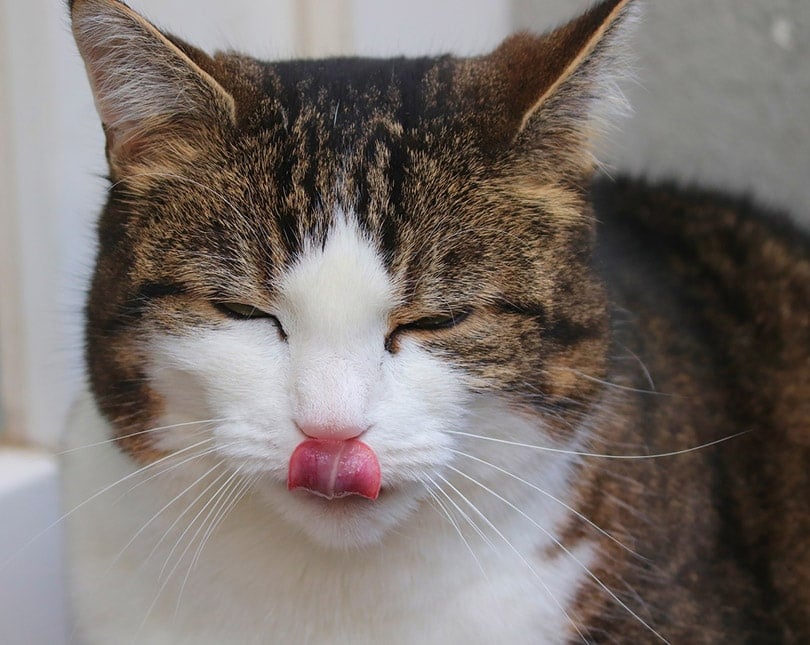
Cats have some quirky behaviors, including licking themselves, you, or the air when they’re being scratched or petted. There are many possible reasons for this, ranging from enjoying the sensation to being uncomfortable.
Here are the four reasons your cat may lick when you’re petting or scratching its back.
The 4 Reasons Why Cats Lick When You Scratch Their Back
1. You’re Scratching a Good Spot
If you are gently rubbing or scratching your cat and hitting an itchy spot your cat can’t get itself, it may trigger your cat to lick the air or another part of its body. This is likely because your cat can’t reach that spot to “help,” and it’s an automatic response to the sensation.
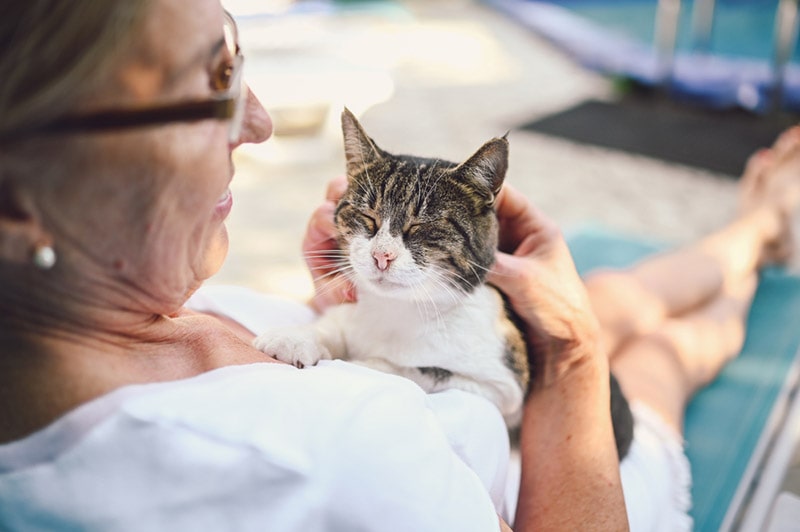
2. Your Cat May Have a Skin Condition
If your cat has fleas, mites, or skin irritation from allergies or an environmental irritant, petting may create an uncomfortable sensation. The licking could be a response to an uncomfortable or annoying sensation. Be careful, as this can progress to biting or scratching itself or you in response.
3. Your Cat Wants You to Stop
Similarly, your cat may be licking because it doesn’t want you petting or scratching, even if there’s nothing wrong with its skin. Some cats suffer from feline hyperesthesia syndrome, which can make their skin highly sensitive. If this is the case, even gentle scratching can be extremely uncomfortable and cause your cat to lash out.
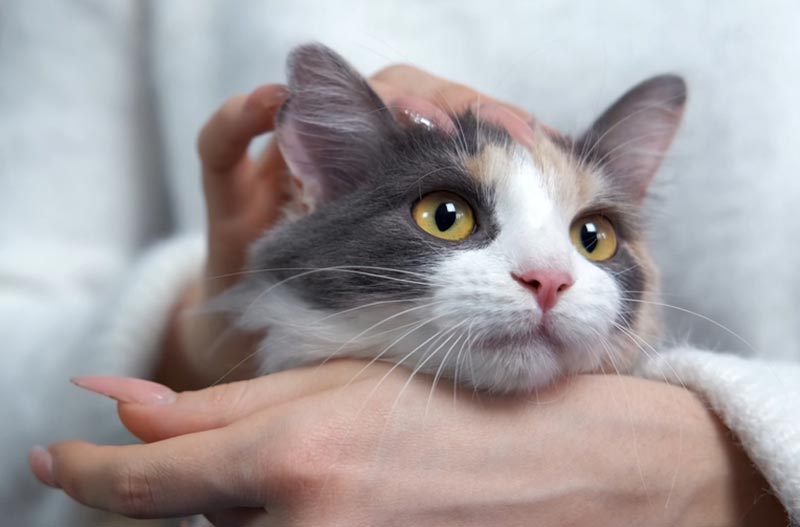
4. Your Cat May Be Engaging in Mutual Grooming (Allogrooming)
Allogrooming is an important part of cat communication and relationships. It could be to demonstrate the bond, to help other cats groom difficult areas, as a maternal instinct, or to redirect aggression. When you’re petting or scratching your cat, it could trigger a mutual grooming desire.
Is It Healthy for a Cat to Lick While Getting Scratched or Petted?
Depending on the reason your cat is licking, the behavior can be a perfectly healthy indication of your bond and love. But in some cases, it could indicate a possible health condition or stressful situation that you need to pay attention to.
The key lies in the rest of your cat’s body language. If your cat stays relaxed while licking or shows other signs of pleasure, such as purring or gentle “love bites,” the licking is likely a sign of pleasure.
However, if your cat seems tense and responds by obsessive licking, scratching, or biting, it could be because the spot you’re petting is uncomfortable or your cat is suffering from a health condition. Take note if the behavior happens in general or only when you hit a certain spot, which could give you a clue into what could be wrong. If you suspect a health problem, it’s important to make an appointment with your vet.
Cats are often clear about their boundaries and quick to let you know that they don’t like what you’re doing. If you notice that your cat is resistant to petting and reacts strongly every time you try, don’t force it! You’ll only damage the relationship and make it more difficult to give your cat affection in the future.
Respect your cat’s boundaries, and you may find that it will be more willing and comfortable coming to you to seek out attention in the future.
Conclusion
Cats may lick in response to being scratched or petted for a lot of different reasons. In many cases, it’s instinctual mutual grooming or an expression of pleasure, but other times, it may be a sign that you’re making your cat uncomfortable. Pay attention to your cat’s behavior and always call your vet if you suspect something is amiss.
Featured Image Credit: manfredrichter, Pixabay

